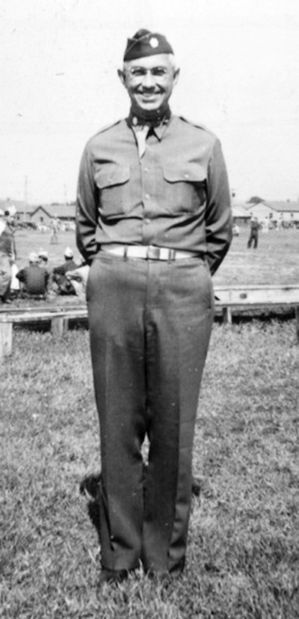Hilo, Hawaii-born Lt. Col. Farrant Turner (1895-1959) was the first commanding officer of the Army’s 100th Infantry Battalion, a World War II combat unit comprised almost entirely of Nisei soldiers from Hawaii. Turner commanded the battalion from the time of
Hilo, Hawaii-born Lt. Col. Farrant Turner (1895-1959) was the first commanding officer of the Army’s 100th Infantry Battalion, a World War II combat unit comprised almost entirely of Nisei soldiers from Hawaii.
Turner commanded the battalion from the time of its formation in Hawaii in 1942, through its training in Wisconsin, Mississippi and Louisiana, its deployment overseas to Africa, and during the battalion’s first weeks of battle in Italy.
On Oct. 29, 1943, Turner was relieved of his command and ordered to a hospital for rest, the reason being that his superior officers wanted a younger commanding officer, more able to withstand the intense mental and physical strain of warfare.
On the evenings of Friday, June 16 and Saturday, June 17, 1944, Turner spoke to packed audiences in the auditoriums of the Lihue and Eleele schools, respectively, about the battalion’s wartime experiences.
Among a number of noteworthy points he made was his statement that the Army had initially planned to use the 100th to guard railways in Africa, but he had protested, insisting the battalion had the right to fight.
Turner also said that the 100th was part of the 34th Division’s 133rd Regiment, which was the leading element of General Mark Clark’s 5th Army.
In response to a false rumor that 100th soldiers had been put out in front to protect other soldiers in Italy, causing them unnecessarily high causalities, he explained that it was true that the 100th had suffered 80 percent casualties, with between 200 and 300 killed and hundreds wounded, but that every fighting outfit in Italy had casualties just as high.
Col. Turner concluded with words of caution. When the men come back home, he said, they’ll be changed.
Living from minute-to-minute, day-to-day, changes men. Those to whom they come back to must be patient and understanding.


